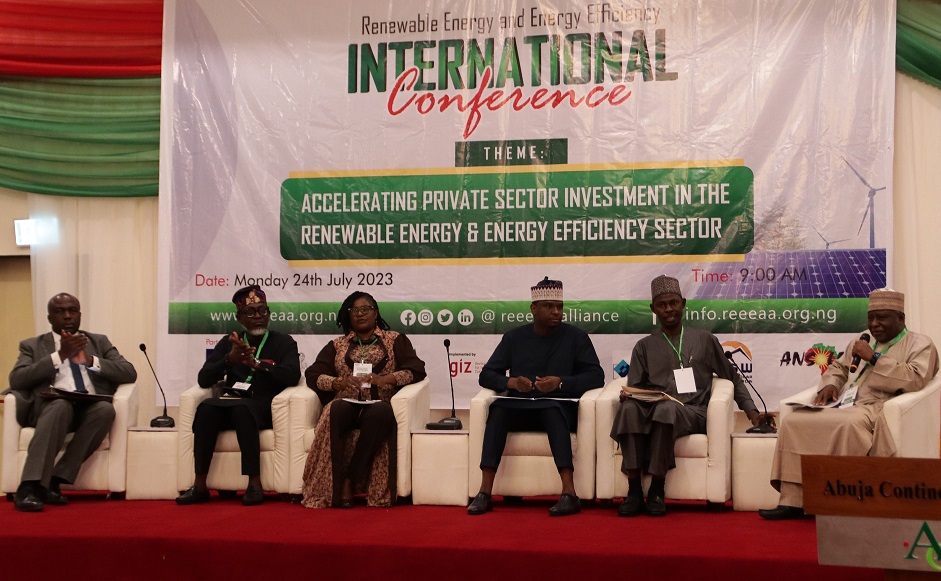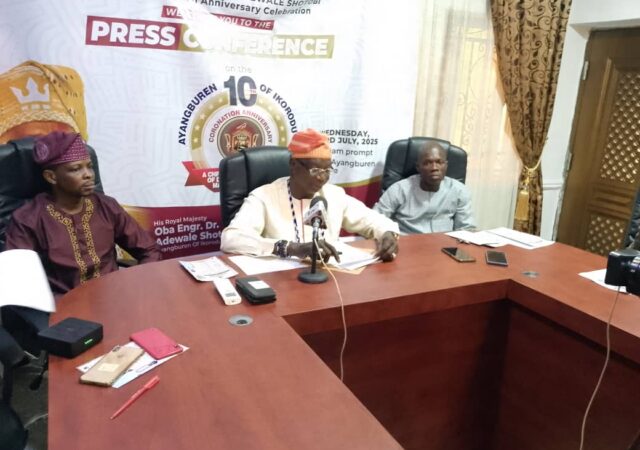Energy experts earlier today called for better engagements between stakeholders including policy makers even as the electricity act has thrown up opportunities for Nigeria’s energy security.
This call was made at the 2nd International Energy Conference of the Renewable Energy and Energy Efficiency Associations Alliance (REEEA-A).
The stakeholders argued that the electricity act has thrown up a lot of challenges as well as opportunities but they can be better managed if invested stakeholders in the sector, comprising the government, the legislature, governors, industry practitioners and civil society are brought together to seek better ways of ensuring that this act provides the needed boost to attain energy security in Nigeria.
Nigeria’s energy transition has been in a constant state of inconsistency with various organs of government pulling in different directions from themselves, and at the same time creating a vacuum between private sector led interventions, public expectations and needs and state measures.
For any energy transition plan to work, the government and the private sector must find the right way for such plans to work,’insisted Ms Annett Gunther, Ambassador of Germany to Nigeria, who was the special guest of honour.
According to Ambassador Gunther, the energy transition requires dynamism and dedicated efforts and above all, collaboration between all sectors and stakeholders.
“We need to examine and develop the right sort of regulatory framework that will spur private sector investment”, says Dr Imamuddeen Talba, Chairman of the Energy Alliance during his opening remarks.
Continuing, he said, ‘It is time for us to explore the role of financial institutions, engage them towards facilitating access to affordable and long term financial options and embrace cutting-edge solutions that will enhance not only renewable energy and energy efficiency projects but also lead to job creation and economic growth’.
Wrapping up, he called for the restructuring of the electricity act and the power sector so that states could have integrated development strategies aligned with the ongoing interventions already on ground by the federal government.
This call was further emphasized by the Chairman of the Board of Trustees, Prof. Abubakar Sambo, who lamented the Nigeria’s dire inability to generate enough power for its needs despite vast resources and sources at the country’s disposal.
Prof Sambo enjoined the conference to look at various dynamic solutions including Green Hydrogen, Electric Mobility interventions and Natural gas, which he said is a transition fuel and already accepted globally.
Incidentally, a major point of discussion was the lack of capacity in the energy sector; and the inability of financial institutions to support local content in the energy sector. This was raised by Dr Sunny Akpoyibo, a member of the Board of Trustees and President of the Council for Renewable Energy Nigeria, who insisted that two major measures must be undertaken for the renewable energy sector to take pride of place in the energy discourse.
“We must build capacity by training not just tens but hundreds of youths and women as the renewable energy sector is a game changer and a great provider of jobs for youths and for women women empowerment”. He said.
Emphasizing, he asked “How many banks have helped local developers in the energy sector to develop bankable documents to access loans or grants, even if its on a case by case basis? Without that capacity, the industry cannot grow”.
He was supported in this assertion by Ify Malo of Cleantech Hub, a panelist at the conference, who disclosed that she had to personally oversee the drafting of bankable documents by some Nigerian developers seeking for an African based grant few years back which had already been accessed by companies in other countries.
According to her. “If I had not personally known the capability of these companies and helped them, no Nigerian company would have been able to access those funds. So the issue is not their capability but putting their documentation in the right format to access these funds”
The high point of the conference was the exhibition of the first made in Nigeria electric Vehicles by the National Automotive Development Council. Incorporating a drive within the venue, the council showed the possibilities of electric vehicles and how they can be utilized as part of the energy transition as well as change the landscape of personal and public and service mobility in Nigeria.
The Conference ended with presentation of awards to deserving organizations and individuals including Prof. Abubakar Sambo, the Rural Electrification Agency (REA), Bank of Industry, Sterling Bank, Auxano Solar, amongst others.







